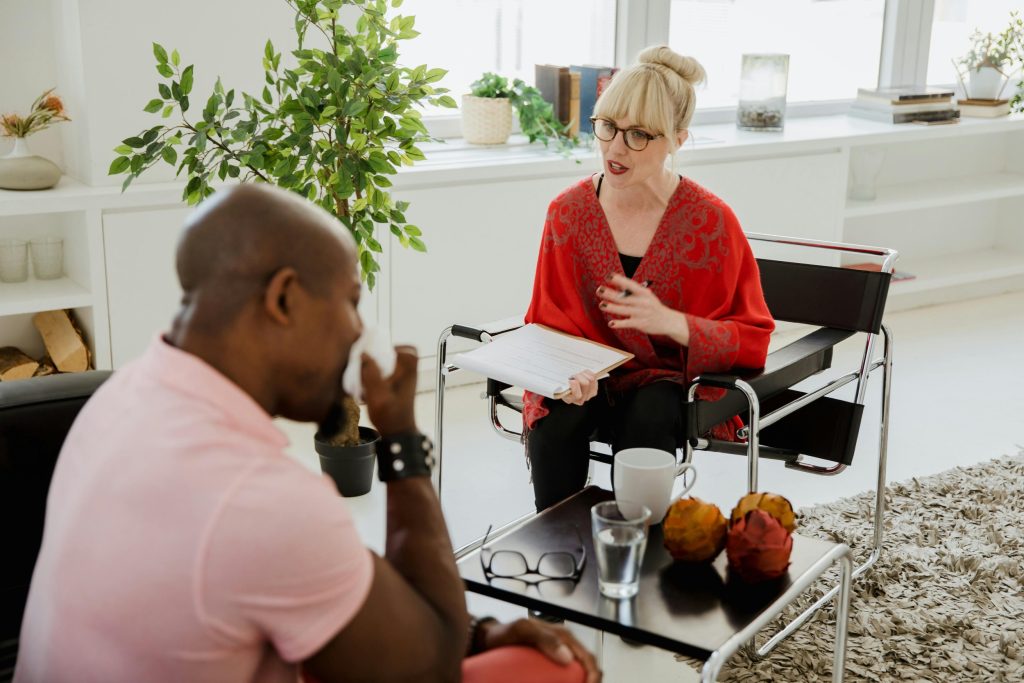Coping Skills
Tools for Managing Life’s Challenges
Coping skills are strategies and techniques that help you handle stress, emotional pain, and difficult situations. Everyone encounters challenges, but having effective coping skills can make all the difference in how you navigate them. Therapy can help you develop these skills, giving you the tools to respond to life’s ups and downs with resilience and confidence.
What Are Coping Skills?
Coping skills are methods you use to manage stress, regulate emotions, and solve problems. They can help you face a variety of challenges, from everyday stressors to major life events.
There are two main types of coping skills:
- Healthy coping skills: These include activities or techniques that help you process emotions and relieve stress constructively, like exercising, journaling, or talking to a friend.
- Unhealthy coping mechanisms: These might provide temporary relief but can cause harm over time, such as substance abuse, overeating, or avoidance.
Learning healthy coping skills can improve your emotional well-being and help you approach challenges with a clear mind.
Why Are Coping Skills Important?
Coping skills are essential for maintaining mental and emotional health. They help you:
- Reduce stress: Effective coping skills lower your body’s stress response, helping you feel calmer and more in control.
- Improve relationships: Healthy coping allows you to communicate better and handle conflicts with understanding.
- Prevent burnout: Coping skills create a balance between work, responsibilities, and self-care.
- Enhance problem-solving: They give you clarity to tackle challenges in a constructive way.
Challenges That Come From Lacking Coping Skills
Without effective coping skills, stress and emotions can feel overwhelming. This can lead to:
- Emotional dysregulation: Struggling to manage emotions may result in mood swings, anger outbursts, or withdrawing from others.
- Increased stress: Without outlets to process stress, you might feel constantly overwhelmed or anxious.
- Unhealthy behaviors: Turning to temporary fixes, like substance use or avoidance, can create long-term problems.
- Strained relationships: Difficulty coping can lead to misunderstandings, conflicts, or isolation.

How Therapy Can Help You Develop Coping Skills
Therapy is an effective way to learn, refine, and practice coping skills tailored to your unique needs. Here’s how it works:
- Identifying Your Stressors and Patterns
A therapist will help you understand what triggers stress or emotional overwhelm in your life. Together, you’ll explore patterns in how you currently respond and identify areas where new coping strategies can be helpful.
- Learning New Coping Techniques
Therapy introduces you to a wide range of healthy coping skills, such as:
- Mindfulness: Techniques like meditation or deep breathing to help you stay grounded in the moment.
- Journaling: Writing about your thoughts and feelings to process them in a safe and reflective way.
- Physical activity: Using exercise to release tension and boost your mood.
- Time management: Strategies to reduce stress by organizing your tasks and prioritizing self-care.
- Practicing Coping Skills in Real-Life Scenarios
Your therapist may use role-playing or discuss specific situations to help you apply these techniques. This practice builds confidence and ensures you’re ready to use your skills when challenges arise.
- Addressing Underlying Issues
Sometimes, difficulty coping stems from deeper emotional wounds or mental health conditions like anxiety or depression. Therapy can help you work through these issues, creating a stronger foundation for healthy coping.
- Building a Personalized Toolkit
Everyone’s needs are different, so therapy focuses on finding coping skills that work for you. Over time, you’ll create a personalized toolkit of strategies you can rely on in any situation.
Examples of Healthy Coping Skills
If you’re unsure where to start, here are some coping skills that many people find helpful:
- Deep breathing exercises to calm your body and mind.
- Talking to a trusted friend about your feelings.
- Spending time in nature to recharge and gain perspective.
- Engaging in hobbies that bring you joy, such as painting or gardening.
- Practicing gratitude by listing things you’re thankful for.


Why Therapy Is the Best Place to Learn Coping Skills
While self-help resources can provide useful tips, therapy offers personalized guidance and support. A therapist can help you:
- Understand what’s behind your struggles.
- Find strategies that align with your personality and lifestyle.
- Build confidence in your ability to manage life’s challenges.
Take the First Step Toward Resilience
Coping skills empower you to face life’s difficulties with strength and clarity. If you’re ready to learn new ways to manage stress, regulate emotions, and find balance, therapy can help. Reach out today and start building the tools you need to thrive.
We treasure what you have to say
If you have any questions or comments, please contact us!
Authentic Living London Psychotherapy and Grief Counselling
* Located in the Thompson Medical Center (TMC+) / Free Parking
